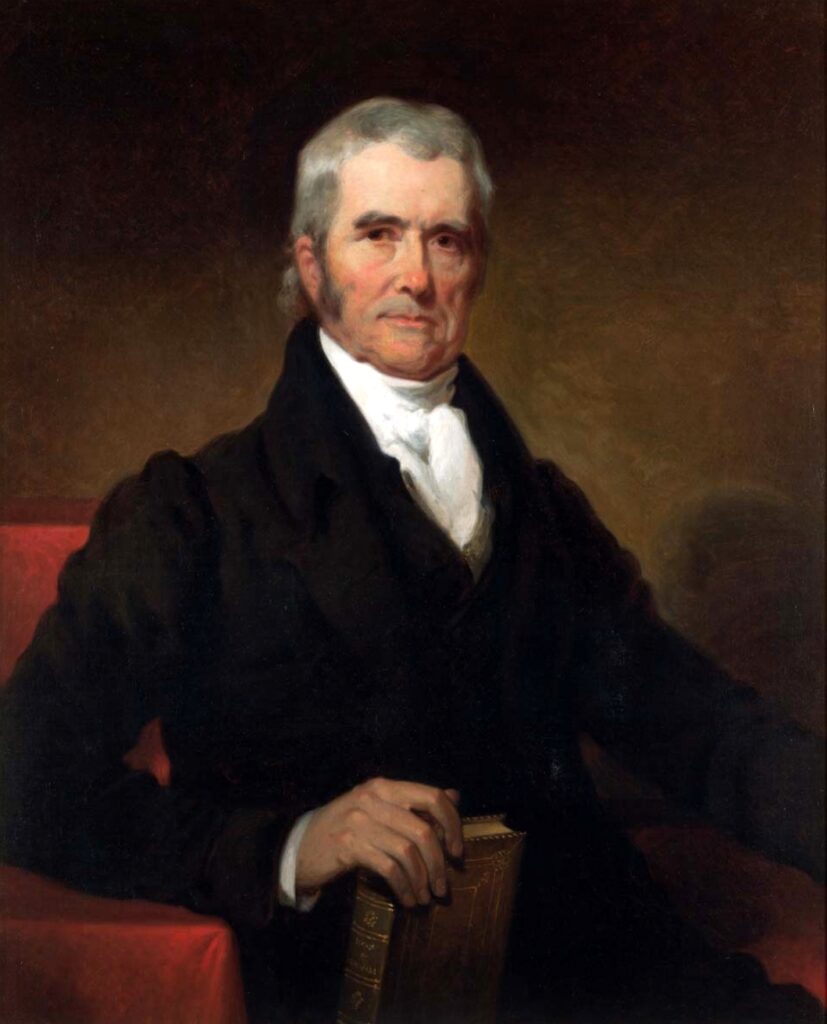The Enduring Constitutional “Quarrel”
What is not prohibited is allowed (Hamiltonian, living constitutionalism) vs. What is not enumerated is reserved (Jeffersonian, originalist)
Marbury v. Madison (1803)
“the constitution controls any legislative act repugnant to it [is] … one of the fundamental principles of our society.”
“A law repugnant to the constitution … is void.”
“the duty of the judicial department is to say what the law is”
Litigants
- William Marbury, appointed Justice of the Peace for District of Columbia (plus William Harper and Robert Townshend Hooe)
- James Madison, Secretary of State
Lawyers
- Charles Lee
Law or legal principle
- Judiciary Acts (1789, 1801)
Key Justices
- John Marshall (1755-1835), age 48 in 1803
Significance
- Understanding judicial review from before and after Marbury
- Developing an independent judiciary
Trustees of Dartmouth College v. Woodward (1819)
Shall our state legislature be allowed to take that which is not their own, to turn it from its original use, and apply it to such ends or purposes as they, in their discretion, shall see fit?”
“It is, sir, as I have said, a small college, and yet there are those that love it.”
McCulloch v. Maryland (1819)
“Let the end be legitimate, let it be within the scope of the Constitution, and all means which are appropriate, which are plainly adapted to that end, which are not prohibited, but consist with the letter and spirit of the Constitution, are constitutional.”

